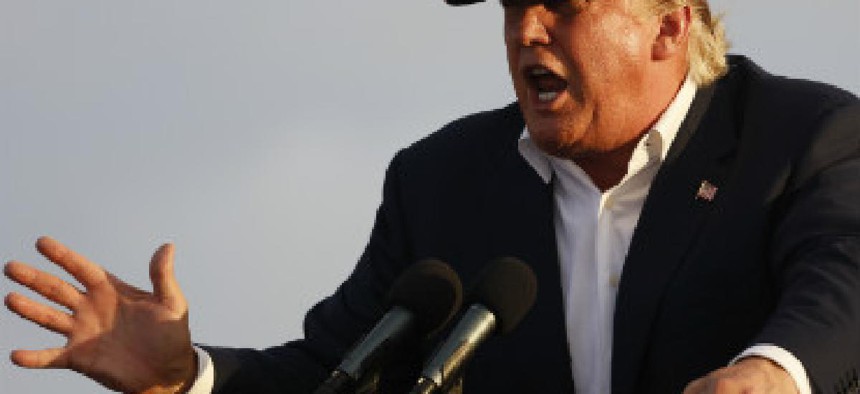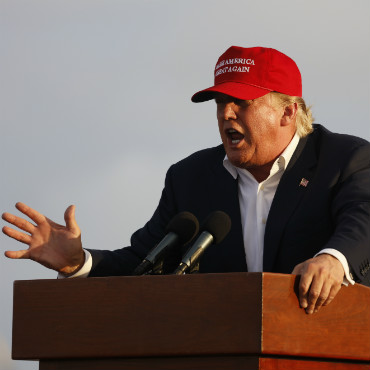HR chiefs: President Trump won't cause government exodus

Federal chief human capital officers are keeping their noses to the grindstone -- and trying to keep their employees doing the same -- in preparation for the impending presidential transition.

Federal HR execs aren't worried about a Trump-induced stampede for the exits. (Photo credit: Joseph Sohm/Shutterstock.com)
After all the hyperbolic bombast, federal HR leaders are hopeful that things will return to normal when the next president takes office – whomever wins the election.
The 2016 election cycle has been "emotionally charged for a lot of folks, and public servants are not immune to that," noted Ray Limon, deputy chief human capital officer for the Department of the Interior.
It's been so charged that when GovExec asked 688 feds for their thoughts on a Donald Trump presidency, 25 percent of respondents said they'd consider quitting their jobs if he were elected and 59 percent said they'd feel embarrassed about the new commander-in-chief.
But that could just be talk.
"I don't think that many of the people are thinking that they're going to leave government" based on election results, said David Tumblin, deputy chief human capital officer at U.S. Immigration and Customs Enforcement.
"I don't see any particular mass exodus or people dialing down," Limon told FCW. "People are going to do their jobs."
For many career feds, those jobs will entail several months of guiding political appointees through the transition.
On the hiring side, "most managers are not aware of the variety of ways we can bring people into the government," said Kevin Mahoney, chief human capital officer for the Commerce Department. He noted that longtime feds will need to guide new agency leaders through special hiring authorities, especially for critical tech and cybersecurity hires.
And in the interim, there are the anxieties of rank-and-file employees to assuage. In the lead-up to the election, wild speculation can lead to "a lot of problems," Mahoney said, so leaders need to "shield [employees] from all of the background noise that goes on and keep them focused on their day-to-day jobs."
Once a new president is elected, he or she will likely be restrained by Congress and existing laws – not to mention limited agency funding – as he or she tries to push particular priorities, Limon noted.
And besides, even after a supercharged campaign, much of government's mission will stay the same.
"I don't know whether the [election] polarization is going to dramatically change the work that I need to be prepared for going forward," Limon told FCW. "Things will tamp down very quickly come inauguration time."
NEXT STORY: TRANSCOM in search of deputy CIO


